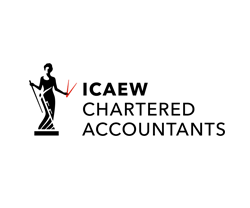July 24th, 2018
Cognitive Biases, or the Stuff We Do That We Don’t Realise We Do
Over the course of human evolution the brain has developed some neat tricks that allow us to function the way we do. Without these neurological shortcuts, known in psychology as cognitive biases, we simply would not be able to process the enormous volume of information we are exposed to each and every day.
These shortcuts are utilised subconsciously in all aspects of daily life, from behaviour to decision-making to memory, and will affect everybody to varying degrees. There’s no getting around this. In fact, one such bias is the tendency to see oneself as less biased than others!
Cognitive biases have proven tremendously useful to us as a species but don’t always lead to optimal outcomes. If we try, however, to become consciously aware of these biases then we can override them and improve those outcomes.
Unfortunately, there are too many biases to consider each one in detail here but I’ve hand-picked twelve which have particular relevance in a business environment. So in no particular order…
Status Quo Bias
As with Catford’s famous purveyors of blues rock, this is the tendency to like things to stay the same. This isn’t a good thing in business because embracing new methods, processes, technology and knowledge is what sets successful businesses apart from the also-rans. The business pages are littered with companies that have failed to keep with the times so the message is simple: Evolve or die.
The Law of the Instrument & Functional Fixedness
A two-for-one double whammy, the first part of which relates to the over-reliance on a familiar tool or method over unfamiliar, but more suitable, alternatives. If all you have is a hammer then everything looks like a nail. This can be compounded by the second aspect, in which we tend to use tools or methods only in the way they are traditionally employed. Utilising all the resources at your disposal to the fullest extent will increase your efficiency.
Unit Bias
This is the tendency to want to focus on one task until it is completed. It makes more sense, though, to have a dynamic approach and deal with tasks as they arise and in accordance with their importance and urgency. Important-urgent tasks should always be completed first with important-not urgent tasks second and not important-not urgent tasks kicked to the long grass even if already started. There is no such thing as a not important-urgent task!
Anchoring
When making decisions, you will tend to focus on one piece of information and this will usually be the first piece of information you acquired. You won’t always receive information in the optimal format or order so it’s important that you take a step back and consider the bigger picture. List all of the information you need and determine which information will carry the most weight (this may be different for different clients and customers).
The Conjunction Fallacy
This is a fancy way of saying that we often assume specific conditions are more probable than general conditions. When you actually analyse your client base and what you do for each of them individually then you will find there is far less client-specific knowledge required than you think. This means you can get your staff to do more which will free up your time to run the business or concentrate on the few clients that do need your specialism.
Irrational Escalation & Outcome Bias
Another potential knock-out combination. The set up is the tendency to continue with a decision solely based on the investment in the decision to date, even if it’s come to light that the decision was an incorrect one. You’ve come this far so you might as well see it through, right? Wrong! Cut your losses. Trying to salvage the situation will only waste further time and resource.
The knockout blow is to judge the original decision by its final outcome. Just because the decision led to a negative outcome does not invalidate the process of arriving at that decision. In fact, we can take a leaf out of science’s book and learn from negative results. For starters, we know that the particular course of action taken following the decision does not work and not to bother wasting time with it in the future.
The Planning Fallacy
It is inherent in our nature to want to please people and so we grossly underestimate how long tasks will take to complete so we end up over-promising and under-delivering. You need to be realistic and factor in enough leeway so that both you and your client are happy with the deadline. Pulling an all-nighter to keep a promise will have detrimental effects on your stress levels and subsequently the quality of your work.
Surrogation
This can potentially be fatal for a business. Business owners will often decide upon various metrics that can act as a proxy for measuring success in an aspect of the business. The problem here is when too much focus is placed on those metrics to the detriment of the overall aim. There may be a drive to boost turnover but if profitability is stagnant or worse, decreasing, then it is clear that turnover cannot be the sole focus. Can also apply in other areas, in particular when measuring staff performance.
Parkinson’s Law of Triviality
This is when disproportionate weight is given to trivial issues over more complex issues. Trivial issues are easier to deal with and spending more time on them means we can avoid more difficult matters. As such, this dovetails with the ostrich effect whereby we ignore negative or difficult situations. Focus on what’s important!
The Worse-than-Average Effect
A select few will be supremely confident (often without the skills to back it up – see the Dunning-Kruger effect) but the majority of us will believe that we are worse than average when it comes to performing difficult tasks. Review the evidence here. You are in business because you can do something, often difficult, that your clients or customers cannot. If you are happy with how business is going then your clients obviously feel you are not worse than average.
The Google Effect
We all do it. We find a piece of useful information on the internet and we bookmark it for future reference. This is all very well and good but we have a tendency to forget information that is readily available to us. So that bookmark may be useful if a client asks you for advice by sending you an email, but it won’t help you over the phone or in a meeting. We remember information more readily if we understand the gist of what’s being conveyed, associate it with a rhyme, right it down, are in a good mood and are exposed to it over a long period of time. These themselves are cognitive biases!
Negativity Bias
We have a tendency to more readily recall unpleasant memories than positive events. You’re doing pretty well if you have no negative experiences in business either with clients, suppliers, staff or other third parties. Because of this bias, the negative events that do arise will be far less frequent than you think so it’s important that you don’t dwell on them. Onwards and upwards!
Further Reading
We’ve only scratched the surface with the dozen biases discussed above so if this has piqued your interest then the full list can be found here.





